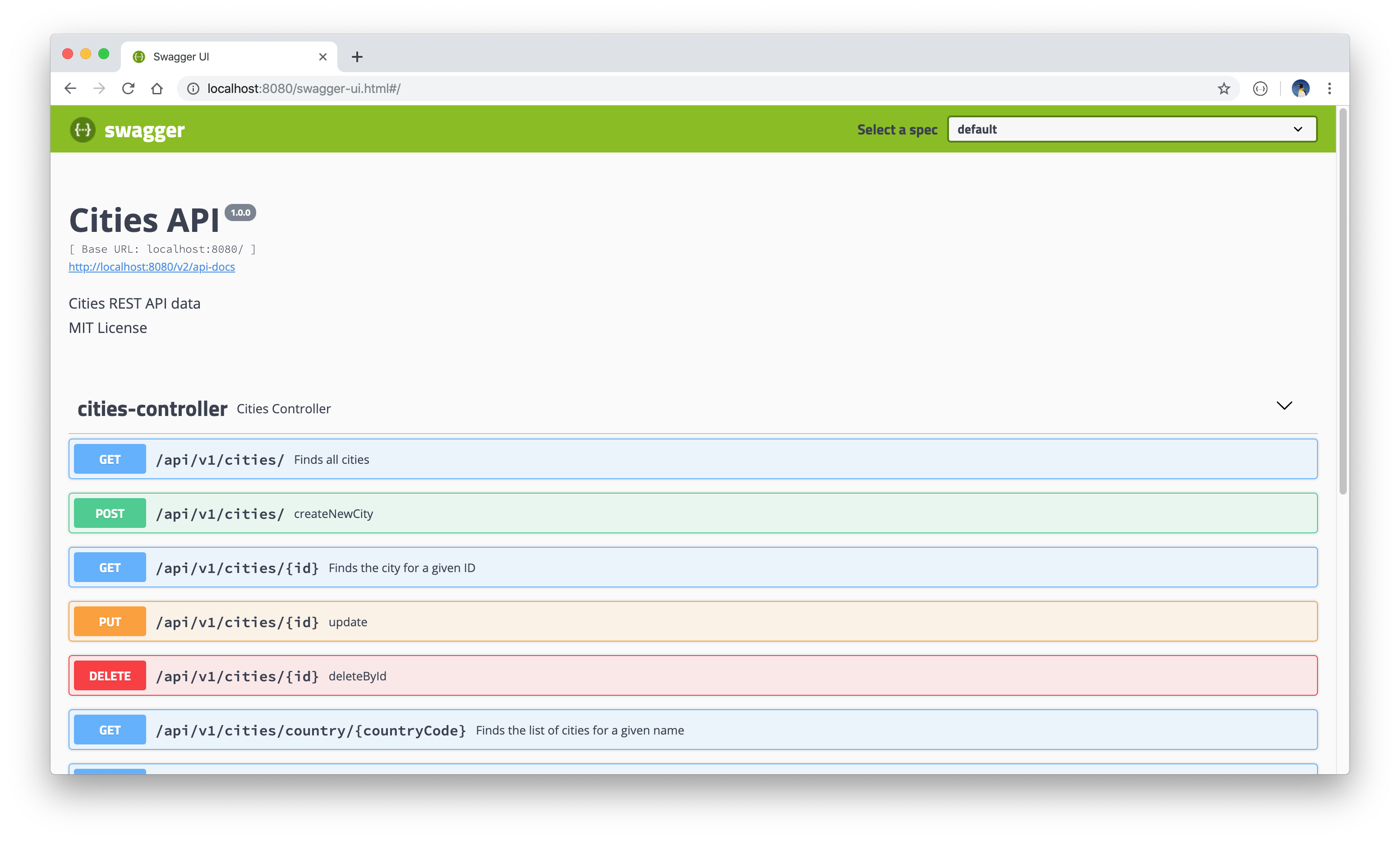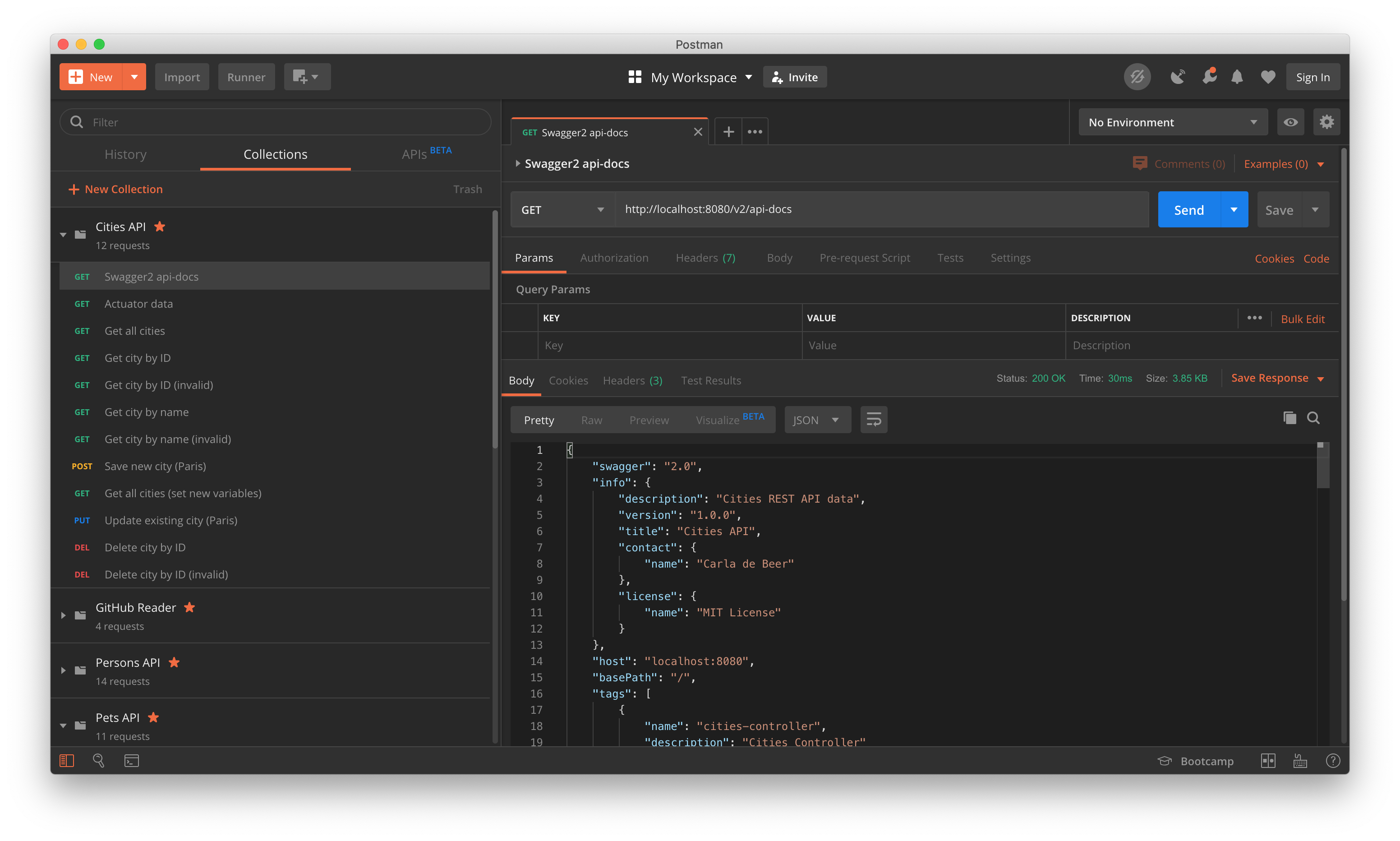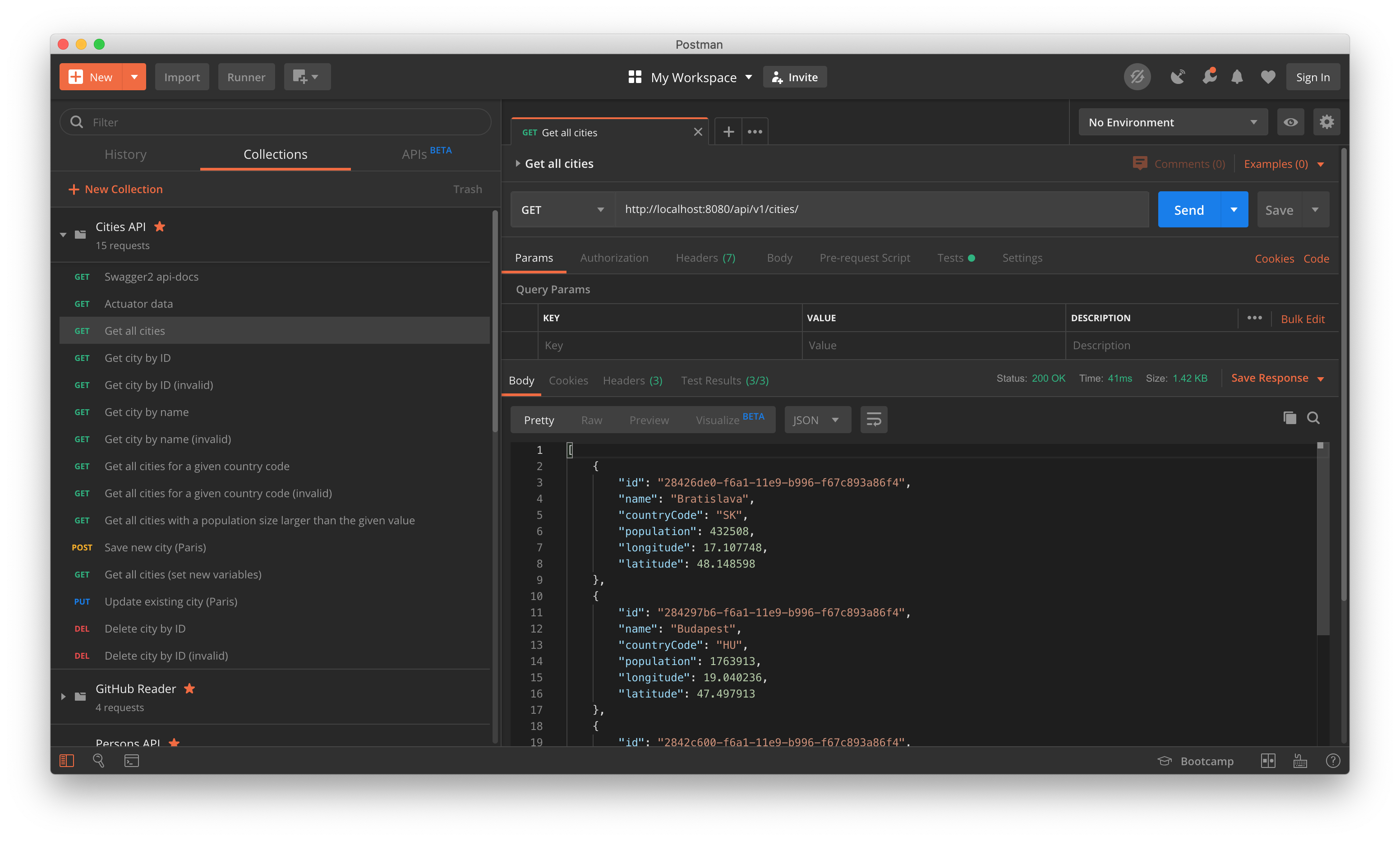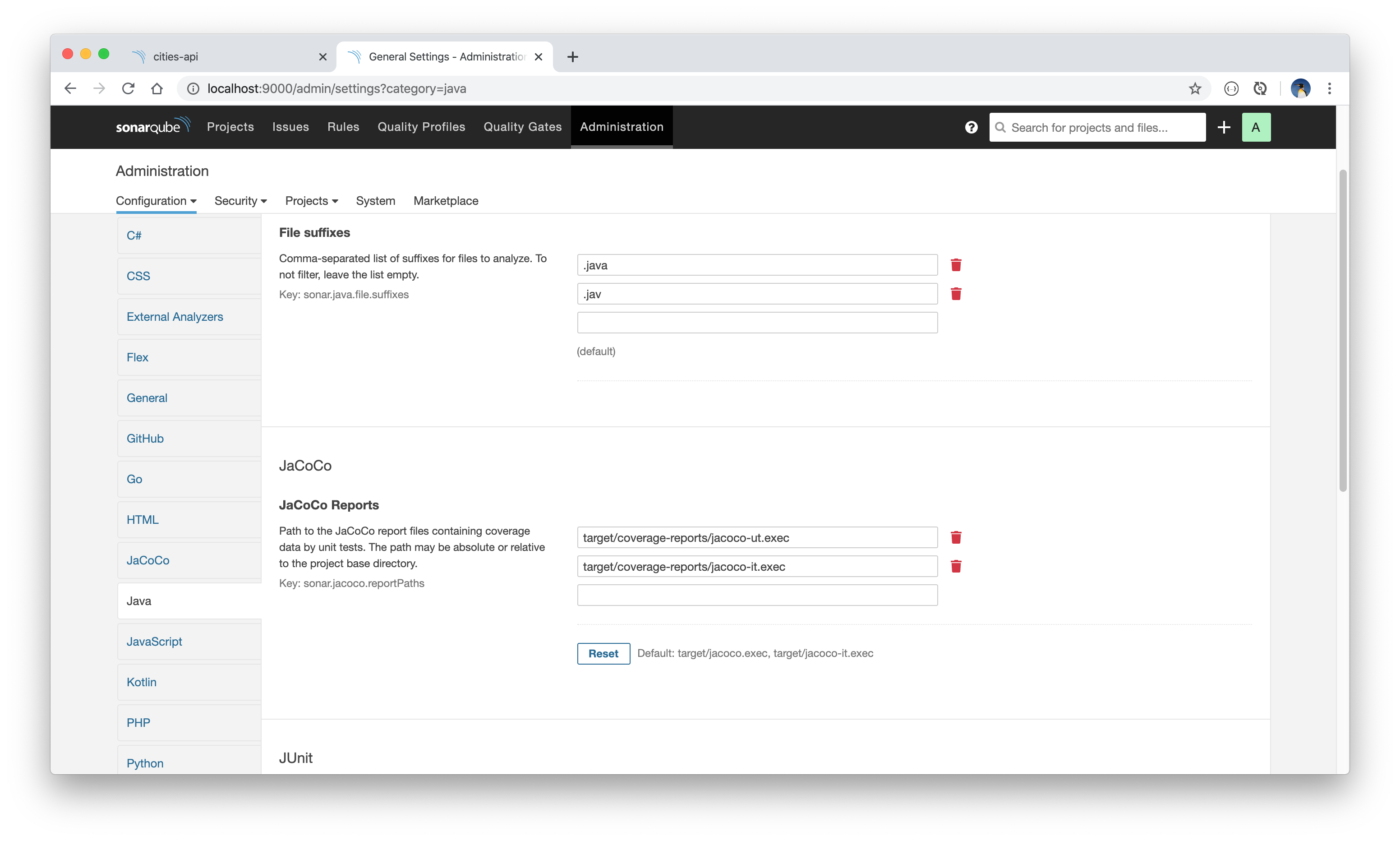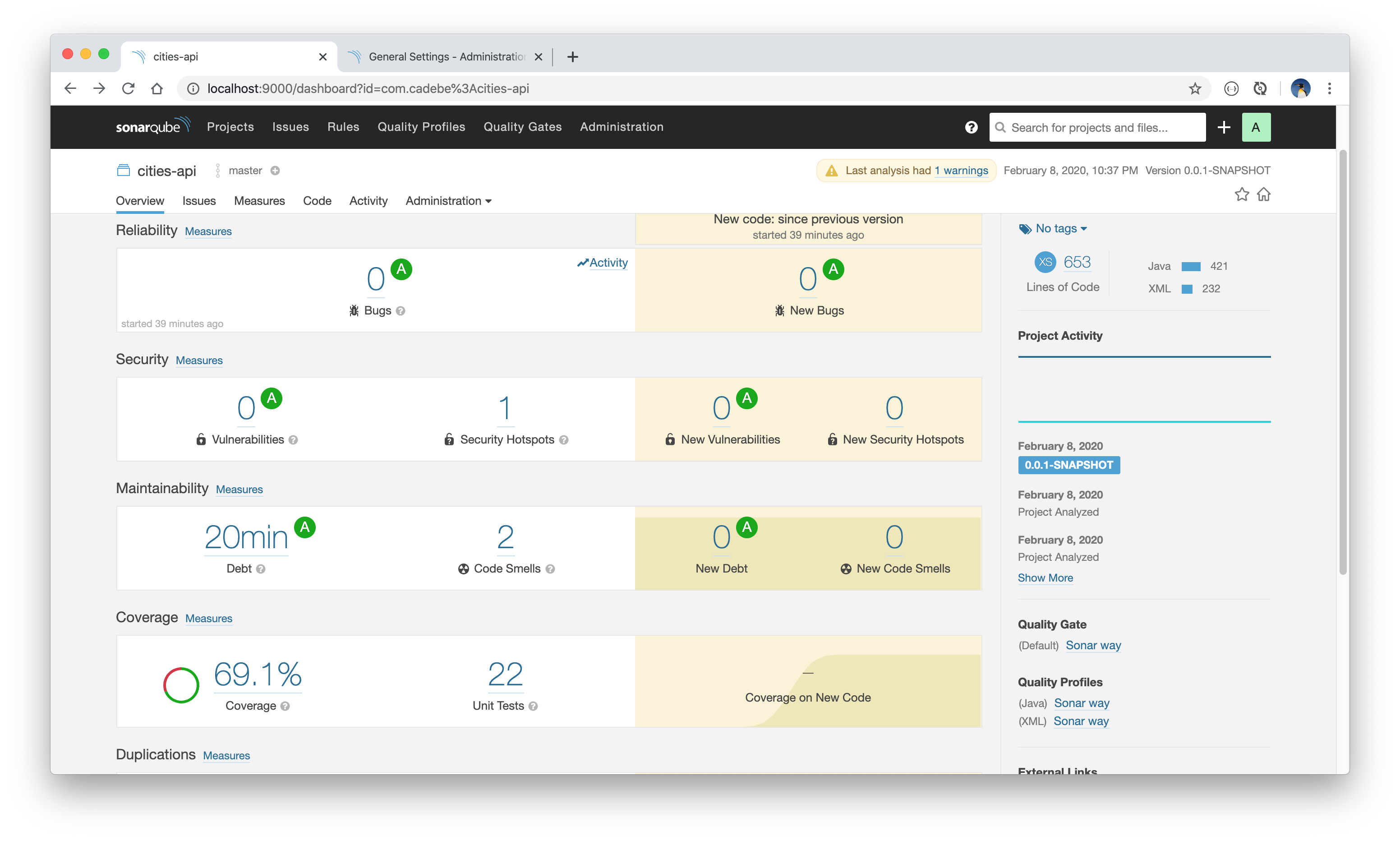This is a Spring Boot API project operating on city-related data. The project allows for connection to either an H2 database (default), or a MySQL database. To change these, comment/uncomment the relevant application properties yml files.
The city data is manipulated by means of standard CRUD calls, together with custom queries.
The project is written in Java 11 and uses Maven as build tool. Swagger2 is used to generate the API documentation. Unit and integration tests are written with JUnit 5 and Mockito. Functional tests are provided by means of the Postman platform. JacCoCo is used to provide test coverage information for the unit tests.
Continuous integration is achieved through CircleCi 2.0. The CircleCi config.yml file is configured to run the integration tests with mock MySQL data in the sql-data/dummy.sql file.
- Java 11
- Spring Boot 2.2.6.RELEASE
- Maven 3.6.3
- H2/MySQL 8.0.18
- JUnit 5
-
Fork or clone the project.
-
To generate the MySQL
cities_dbdatabase, tables and users, follow the SQL queries inside the filesrc/main/scripts/configure-mysql.sql. For the H2 database, initial data is read in via theBootstrapclass. -
Add a database username and password to the
src/main/resources/application.propertiesfile. -
Start the project server by running the command
mvn spring-boot:run. -
The API can be called with any of the following cURL CRUD-based requests (in either JSON or XML formats):
-
GET/READ
curl -i http://localhost:8080/api/v1/cities/curl -X GET --header 'Accept: application/xml' 'http://localhost:8080/api/v1/cities/'curl -i http://localhost:8080/api/v1/cities/<id>curl -X GET --header 'Accept: application/xml' 'http://localhost:8080/api/v1/cities/<id>'curl -i http://localhost:8080/api/v1/cities/name/<cityName>curl -X GET --header 'Accept: application/xml' 'http://localhost:8080/api/v1/cities/name/<cityName>'curl -i http://localhost:8080/api/v1/cities/country/<countryCode>curl -X GET --header 'Accept: application/xml' 'http://localhost:8080/api/v1/cities/country/<countryCode>'curl -i http://localhost:8080/api/v1/cities/population/<size>curl -X GET --header 'Accept: application/xml' 'http://localhost:8080/api/v1/cities/population/<size>'
-
CREATE/ADD:
curl -i -H "Content-Type: application/json" -X POST -d '{"name": "Paris","population": 12532901,"longitude": 0.0, "latitude": 0.0}' http://localhost:8080/api/v1/cities/
-
UPDATE/EDIT:
curl -i -H "Content-Type: application/json" -X PUT -d '{"name": "Paris","population": 12532901,"longitude": 48.864716, "latitude": 2.349014}' http://localhost:8080/api/v1/cities/<id>
-
DELETE:
curl -i -X DELETE http://localhost:8080/api/v1/cities/<id>
-
Alternatively, import and run the Postman test collection. These can be found under src/test/resources/dev.cadebe/cities_api/Postman\ tests/Cities\ API.postman_collection.json.
API documentation is provided by means of Swagger2, which can be opened in the browser with the following urls:
-
To view code analysis via SonarQube, run the following Docker command to create a Docker container with SonarQube inside:
docker run -d --name sonarqube -p 9000:9000 -p 9092:9092 sonarqube -
To send the coverage report to SonarQube, run the following maven command inside the terminal:
mvn sonar:sonar -Dsonar.login=admin -Dsonar.password=admin -
Following the completion of this plugin execution, open a browser window with the URL
http://localhost:9000and log in with username and passwordadmin. -
Also configure the SonarQube for the correct sonar.jacoco.reportPaths (as shown in the image below:
http://localhost:9000/admin/settings?category=java
